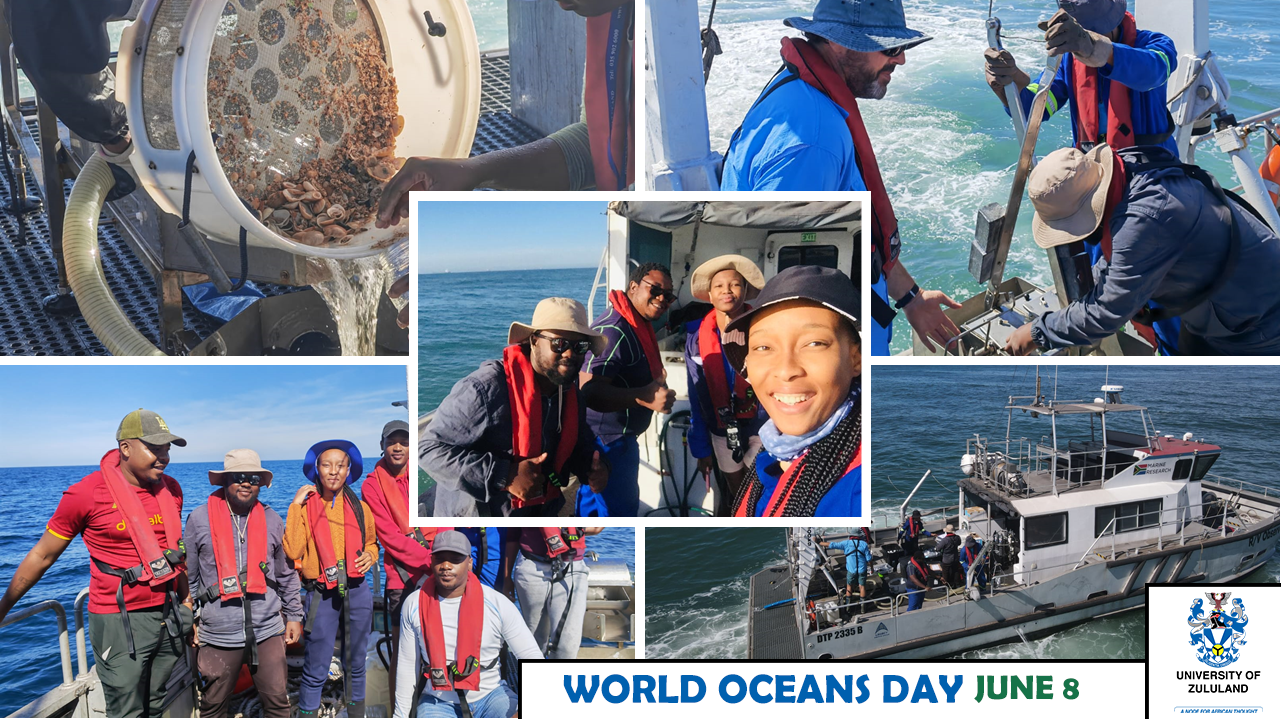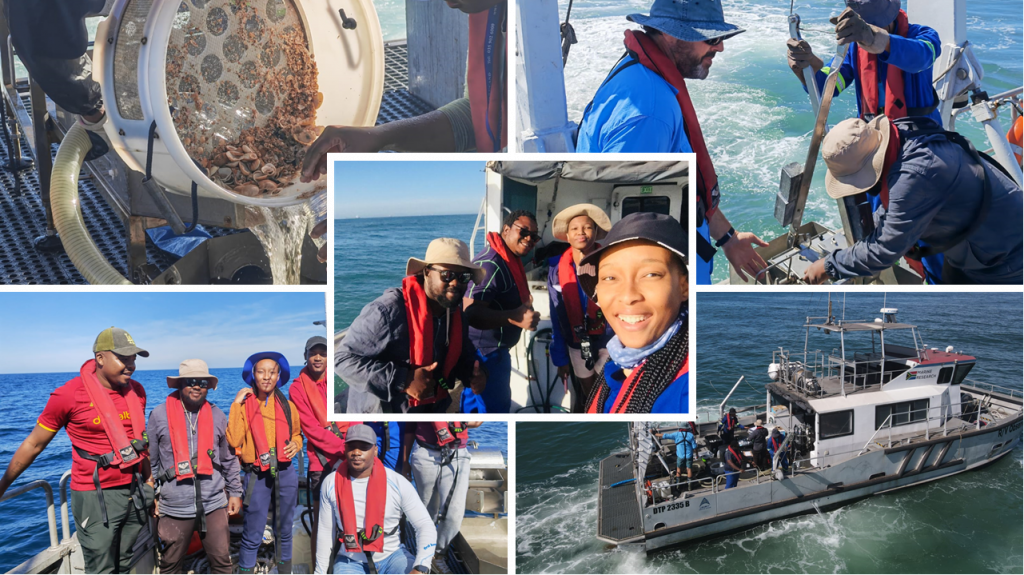OPINION PIECE: World Oceans Day: Tides Are Changing (at UNIZULU)

Author : Dr Ntuthuko Masikane (Zoology Department)
When you visit the beach frequently, you will notice that sometimes the ocean water is closer to the coast and sometimes the waters are further from the coast. What you see is the results of the tides, rising and falling due to the tidal force that is generated by the moon. As the moon rotates around the earth, the moon’s gravity pulls the earth, which causes the earth’s water to bulge out towards the moon thus causing the tides to rise. The theme for this year’s World Oceans Day, which is celebrated on the 08th of June, is Tides are Changing. The major problem facing our oceans is pollution. Of major concern lately are microplastics and chemicals of emerging concern (CECs). Microplastics come from plastic items that we buy and never reuse, and these include shopping plastic bags that we buy at shops and then discard after just one use. CECs are chemicals that do not get removed by water treatment works and are introduced to rivers, estuaries and eventually reach the ocean. Some of these contaminants are introduced by effluent pipelines from major cities and towns. A lot of things need to change so that the oceans can continue providing the services that it provides us.Tides are also changing in the Department of Zoology. For the first time in a long time, the department is conducting marine research on a project that has been funded by the National Research Foundation. Dr Ntuthuko Masikane, the Principal Investigator of the project is leading a team of 11 scientists, and these include Dr Shaun Deyzel who is a Co-Principal Investigator and Dr Lucienne Human. These researchers are both based at the South African Environmental Observation Network Elwandle Node in Gqeberha. Other collaborating researchers are Dr Bhekumuzi Gumbi (Chemistry Department, University of KwaZulu-Natal), Dr Gwyneth Matcher (South African Institute for Aquatic Biodiversity) and Prof Leon Vivier (Department of Zoology, UNIZULU). This project is also training three PhD Students and three MSc students. These students are focusing on different aspects of the project (mainly marine ecological research, environmental chemistry and DNA studies). The main aim of the project is to assess the environmental health status of Algoa Bay and Cape St Francis Bay in the Eastern Cape by determining the level of contamination in the two marine ecosystems and how living organisms in these ecosystems respond to contaminants such as metals, microplastics and organic contaminants. Results from this research will assist environmental managers in developing strategies that can combat marine pollution. Let us take care of our oceans and they will take care of us.

Marine Research: Sample processing (top left), Dr Shaun Deyzel, SAEON Elwandle Node (top right), Research Team led by PhD students Sazi Nzama and Lungelo Nsibande on the second sampling trip (bottom left), Research Vessel Observer (bottom right), Dr Masikane (Principal Investigator) and the PhD students (from left to right; Mr Sazi Nzama, Lungelo Nsibande and Nokwanda Hendricks; centre).













